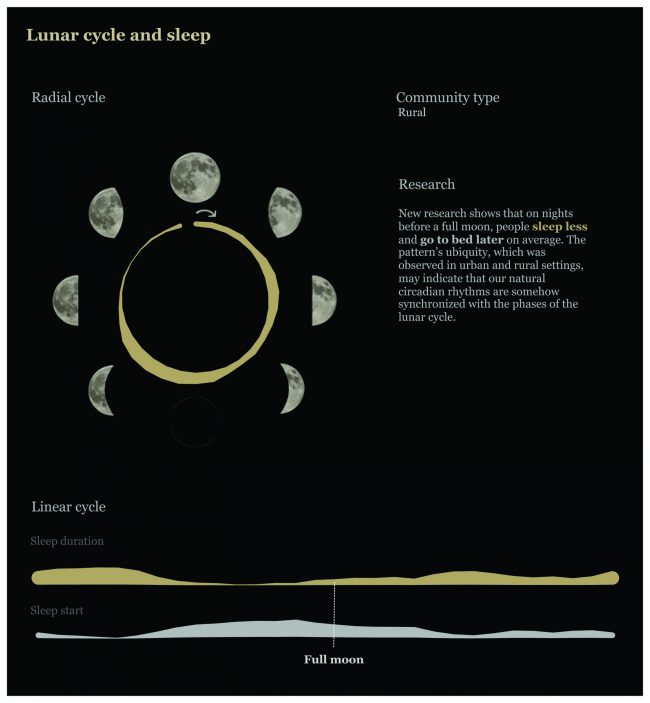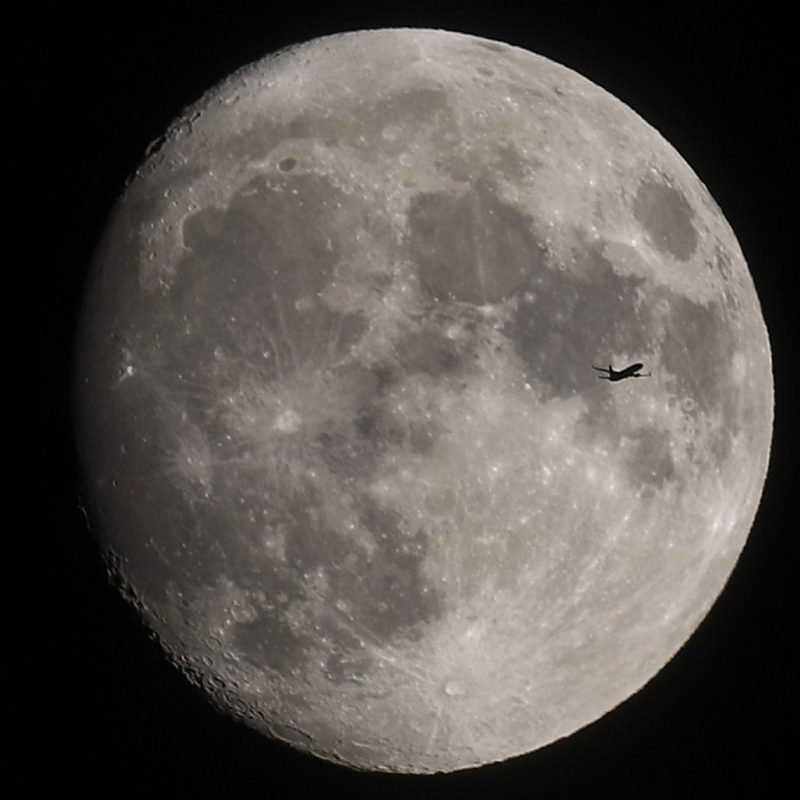Read below about research showing it’s true … we sleep less before a full moon.
The full super Harvest Moon is coming up overnight on September 28-29, 2023, for us in the Americas. And we know there are lots of superstitions about full moons. Scientists have debunked many, while others are still under study. But here’s one that appears to be true: people do sleep less before a full moon.
That was the conclusion of a 2021 study in the peer-reviewed journal Science Advances.
Scientists at the University of Washington, the National University of Quilmes in Argentina and Yale University conducted the study. They analyzed sleep patterns in two very different locales. First, they studied Toba/ Qom communities of rural Argentina, where people have little to no access to artificial light sources. Then, they studied college students living in downtown Seattle, Washington.
Their results show that, even in urbanized locations where the light of the full moon is drowned by city lights, the phases of the moon still influence people’s sleep patterns.
Do you sleep less before a full moon?
In the not-too-distant past – before the days of electric lights – people would spend more hours outside after dark around the time of a waxing gibbous or a full moon. On those nights, the moon shines in the evening sky as the sun goes down. The full or nearly full brightens the evening sky. It provides extra light for human work and play to extend past daylight hours.
The best-known example of a full moon that lights up human activities is probably the full Harvest Moon. It happens in the autumn months when, for several nights in a row around the time of full moon, there’s no long period of darkness between sunset and moonrise.
And, of course, autumn is also harvest time, so farmers would gather in their crops by the light of the moon.
Read about this year’s Harvest Moon

How our ancestors slept
In preindustrial society, humans’ lives revolved around sunrise and sunset. When it was dark, it wasn’t safe outside anymore to hunt or gather food.
But with the advent of artificial lighting, humans could and quickly did change their sleep-and-wake patterns. Now people are up – working and playing – at all hours of the day and night.
And yet, as with humans of old – and as with animals living in the wild – we modern humans are still subject to circadian rhythms. Those 24-hour cycles dictate when wakefulness and sleep should occur.
And the cycles are tied to light, with sunlight waking diurnal creatures and sending nocturnal animals back to their lairs.
How people sleep now
Participants in the 2021 sleep-moon study wore wristwatches that monitored their sleeping and waking.
Scientists who participated in the study were able to show that the oscillation patterns in people’s sleep coincided with moon phases. These researchers – led by University of Washington professor of biology Horacio de la Iglesia – reported that from three to five days leading up to a full moon, people tended to go to bed later in the evening and sleep less overall.
The study showed that whether the people are in a dark rural environment or an urban environment, where moonlight can’t compete with the lights of the big city, their test subjects still followed the pattern of falling asleep later and sleeping less in the week leading up to full moon.
So – even if you’re not aware of the moon phase – it likely still has an effect on you.
What did they learn?
People in the study groups fell asleep up to a half hour later on full moon nights in contrast to new moon nights (which are nights with no moon at all). And they slept for up to an hour less on full moon nights than during new moon.
The more rural the people in the study were, the stronger the effect. But those in the big city still responded to the moon’s influence.
In the nights following a full moon, a now-waning moon will rise later in the evening, often after most people have already fallen asleep. On those nights, the researchers found no effect via moon phase on the sleep patterns of people studied.
Future sleep researchers will probe questions of the full moon’s effect on our circadian rhythms.
For now, if you find yourself tossing and turning on nights leading up to a full moon, no need to stress. And if – around the time of full moon – it seems as if you’re going to bed later, and sleeping less overall … don’t stress! This study has your back.

Bottom line: A new study shows that – whether you live in a rural or urban environment – your sleep patterns might be affected by the full moon. On the nights leading up to full moon, people fall asleep later and sleep less overall.
Source: Moonstruck sleep: Synchronization of human sleep with the moon cycle under field conditions

